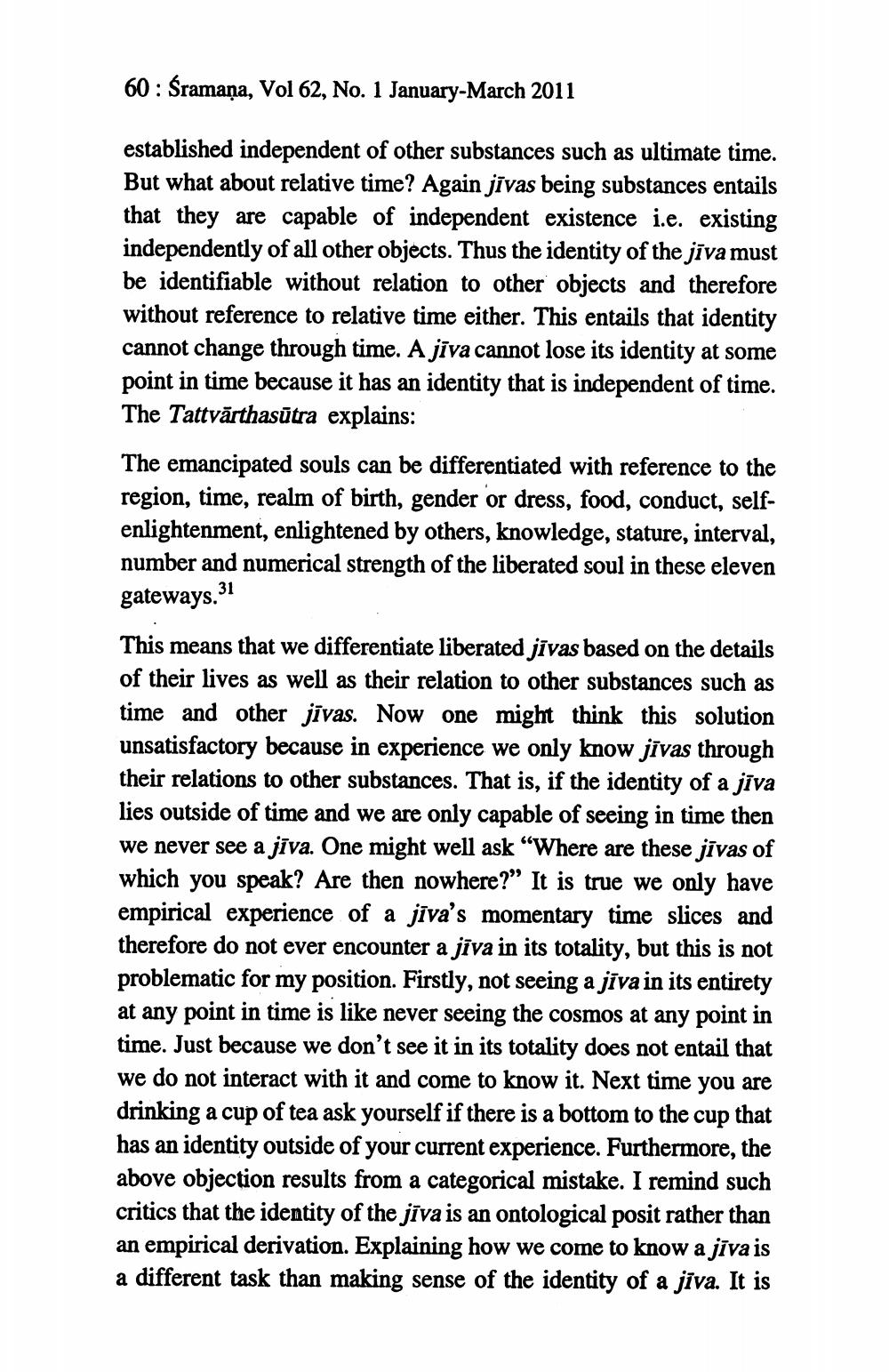________________
60 : Sramaņa, Vol 62, No. 1 January-March 2011
established independent of other substances such as ultimate time. But what about relative time? Again jīvas being substances entails that they are capable of independent existence i.e. existing independently of all other objects. Thus the identity of the jīva must be identifiable without relation to other objects and therefore without reference to relative time either. This entails that identity cannot change through time. A jīva cannot lose its identity at some point in time because it has an identity that is independent of time. The Tattvārthasūtra explains: The emancipated souls can be differentiated with reference to the region, time, realm of birth, gender or dress, food, conduct, selfenlightenment, enlightened by others, knowledge, stature, interval, number and numerical strength of the liberated soul in these eleven gateways. 31 This means that we differentiate liberated jīvas based on the details of their lives as well as their relation to other substances such as time and other jīvas. Now one might think this solution unsatisfactory because in experience we only know jīvas through their relations to other substances. That is, if the identity of a jīva lies outside of time and we are only capable of seeing in time then we never see a jīva. One might well ask “Where are these jīvas of which you speak? Are then nowhere?” It is true we only have empirical experience of a jīva's momentary time slices and therefore do not ever encounter a jīva in its totality, but this is not problematic for my position. Firstly, not seeing a jīva in its entirety at any point in time is like never seeing the cosmos at any point in time. Just because we don't see it in its totality does not entail that we do not interact with it and come to know it. Next time you are drinking a cup of tea ask yourself if there is a bottom to the cup that has an identity outside of your current experience. Furthermore, the above objection results from a categorical mistake. I remind such critics that the identity of the jīva is an ontological posit rather than an empirical derivation. Explaining how we come to know a jīva is a different task than making sense of the identity of a jīva. It is




